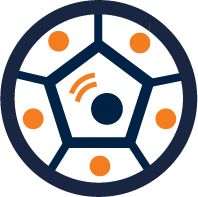Community established: 12 May 2022
Community white paper: Community-driven ELIXIR activities in single-cell omics
Community goal: The ELIXIR Single-Cell Omics (SCO) Community focuses on the identification of key challenges in single-cell and spatial omics. The community aims to develop integrated, long-term solutions for SCO research. Additionally, the SCO Community is committed to advancing the adoption of FAIR principles (Findability, Accessibility, Interoperability and Reusability) in single-cell data analysis.
Join our community to collaborate on innovative single-cell and spatial research integrating multi-omics and multimodal approaches.
Community objectives
- Upskilling scientists in SCO data analysis and standards
- Developing benchmark proposals and collecting data suitable for benchmark creation
- Proposing best practices for FAIRification, establishing and promoting data and metadata standards
Community impact
Examples of past activities and events:
- Community white paper: Published in 2022, detailing the Community's foundational goals and strategies
- Tutorial "Generative AI for Single-Cell Perturbation Modeling: Theoretical and Practical Considerations" (ISMB/ECCB, UK, 2025)
- Spatial Omics Data Analysis course (Lausanne, Switzerland, 2025)
- SCONE - Single-Cell Omics Network of ELIXIR: Community implementation study (2023–2025)
- Project Unpacking Single-Cell LLMs: A FAIR Framework for scalable, shareable single-cell foundation models (EU Biohackathon 2025, Germany, November 2025)
- Workshop for Single-Cell Omics data analysis trainers (Geneva, Switzerland, 2023)
Leadership
The Communities portfolio is overseen by the Programme Manager for Communities. The Community is led by a team of three co-leads, supported by an ELIXIR Hub liaison.

(ELIXIR Italy)

(ELIXIR Finland)

(ELIXIR Greece)

katharina.heil@elixir-europe.org
(Communities Liaison, ELIXIR Hub)
Find out more
- Contact the Community co-leads: single-cell-omics-coleads@elixir-europe.org
- To reach out to all Community members, use the Community mailing list: single-cell-omics-community@elixir-europe.org